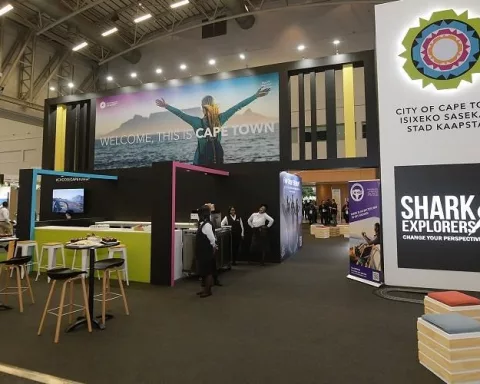The combined efforts of all parties involved continue to fortify the security network, ensuring that Cape Town remains a safe and welcoming destination for tourists globally. Cape Town’s tourism industry is being protected from scams through a collaborative effort between local law enforcement, the mayoral task force, and the banking sector. The Tourism Unit is dedicated to protecting tourists and has achieved numerous victories against criminals. Despite recent incidents of fraud, the city’s message to criminals is clear: they will not succeed in targeting tourists.
Unity in Action: Safeguarding Cape Town’s Tourism Industry from Scams
How is Cape Town’s tourism industry being protected from scams?
The local law enforcement, mayoral task force, and the banking sector are working collaboratively to prevent ATM-related crimes and protect tourists. The Tourism Unit is specifically dedicated to protecting tourists, and its cooperative efforts have resulted in numerous victories against criminals. The combined efforts of all parties involved continue to fortify the security network, ensuring that Cape Town remains a safe and welcoming destination for tourists globally.
An Unfortunate Incident in Cape Town
A troubling incident that recently occurred in the heart of Cape Town highlights the universal problem of fraud. A German tourist in the city’s Gardens area was deceived by criminals disguised in seemingly official uniforms. However, this alarming event was addressed with immediate and decisive action from local law enforcement and the mayor’s office, demonstrating their commitment to protecting both citizens and tourists.
The quartet of criminals relied on a vehicle for their escape. As soon as the crime was reported, law enforcement officers and the mayoral task force initiated a high-speed pursuit through the city streets. Despite the criminals’ desperate attempts to force a CCID vehicle off the road, the brave policemen managed to corner the culprits and subsequently apprehend them.
The car used by the criminals, which was rented and fitted with fake number plates, contained a wealth of condemning evidence. Among the items found were keypads for recording victims’ ATM pins, garments with security branding, a counterfeit security officer ID card, and a plethora of ATM cards. A two-way radio, typically used by security officers and likely used to orchestrate their unlawful activities, was additionally discovered. This overwhelming evidence resulted in the suspects being slapped with multiple charges, including theft, fraud, and possession of stolen property.
A Glaring Gap in the Criminal Justice System
What’s most concerning about this case is that one of the criminals had been arrested thrice in the past nine years for ATM-related crimes. This individual’s continued freedom is a stark testament to the flaws within the criminal justice system. JP Smith, the Mayco member for safety and security, has expressed deep concern over this loophole.
A joint initiative was launched last year to tackle the ongoing issue of ATM-related crimes, involving local law enforcement and the private banking sector. This collaboration aims to leverage specific legislation to prevent these criminals from exploiting legal gaps. The professionals from the banking sector who assist remain anonymous, but their 24/7 availability has proven to be a vital asset.
The combined efforts of the mayoral project and law enforcement officers in the CBD area have been vital in confronting these crimes directly. Principle Inspector Ricardo Meyer took pride in his team’s accomplishments, emphasizing their dedication to protecting Cape Town’s critical tourism industry. Even though the Tourism Unit is small, it was specifically created to protect tourists, especially in the CBD area, where many have fallen prey to criminals.
A Strong Stand Against Crime
The Tourism Unit springs into immediate action whenever a crime is reported or known suspects are spotted, collaborating with neighborhood watch groups and CID’s to bring the offenders to justice. Their relentless dedication has resulted in numerous victories against ATM-related crimes.
The tourism industry in Cape Town is a critical income source for many residents, making its protection even more essential. For the criminals who view tourists as easy targets, the city’s message is loud and clear: think again. The cooperative efforts of the mayor’s office, law enforcement, and the banking sector continue to fortify the security network, ensuring that Cape Town remains a safe and welcoming destination for tourists globally.
As Cape Town continues to confront these challenges, both tourists and residents can find solace in the fact that there are persistent efforts underway to ensure their safety. With the city’s law enforcement and the mayoral task force working collaboratively, they present a powerful deterrent to crime. Their vigilance, commitment, and prompt response to criminal activities reaffirm their dedication to preserving the safety and security of everyone in Cape Town.
-
How is Cape Town’s tourism industry being protected from scams?
The local law enforcement, mayoral task force, and the banking sector are working collaboratively to prevent ATM-related crimes and protect tourists. The Tourism Unit is specifically dedicated to protecting tourists, and its cooperative efforts have resulted in numerous victories against criminals. The combined efforts of all parties involved continue to fortify the security network, ensuring that Cape Town remains a safe and welcoming destination for tourists globally.
-
What happened in the recent incident in Cape Town?
A German tourist in Cape Town’s Gardens area was deceived by criminals disguised in seemingly official uniforms. The criminals were apprehended by local law enforcement and the mayoral task force after a high-speed pursuit. They were found to have a wealth of condemning evidence in their rented car, including keypads for recording victims’ ATM pins, garments with security branding, a counterfeit security officer ID card, and a plethora of ATM cards.
-
What is concerning about this recent case?
One of the criminals apprehended had been arrested thrice in the past nine years for ATM-related crimes and was still free. This individual’s continued freedom highlights the flaws within the criminal justice system.
-
What joint initiative was launched to tackle the ongoing issue of ATM-related crimes?
A joint initiative involving local law enforcement and the private banking sector was launched last year to tackle the ongoing issue of ATM-related crimes. This collaboration aims to leverage specific legislation to prevent these criminals from exploiting legal gaps.
-
How does the Tourism Unit protect tourists?
The Tourism Unit springs into immediate action whenever a crime is reported or known suspects are spotted, collaborating with neighborhood watch groups and CID’s to bring the offenders to justice. Their relentless dedication has resulted in numerous victories against ATM-related crimes.
-
What is the message to criminals who target tourists in Cape Town?
For the criminals who view tourists as easy targets, the city’s message is loud and clear: think again. The cooperative efforts of the mayor’s office, law enforcement, and the banking sector continue to fortify the security network, ensuring that Cape Town remains a safe and welcoming destination for tourists globally.












